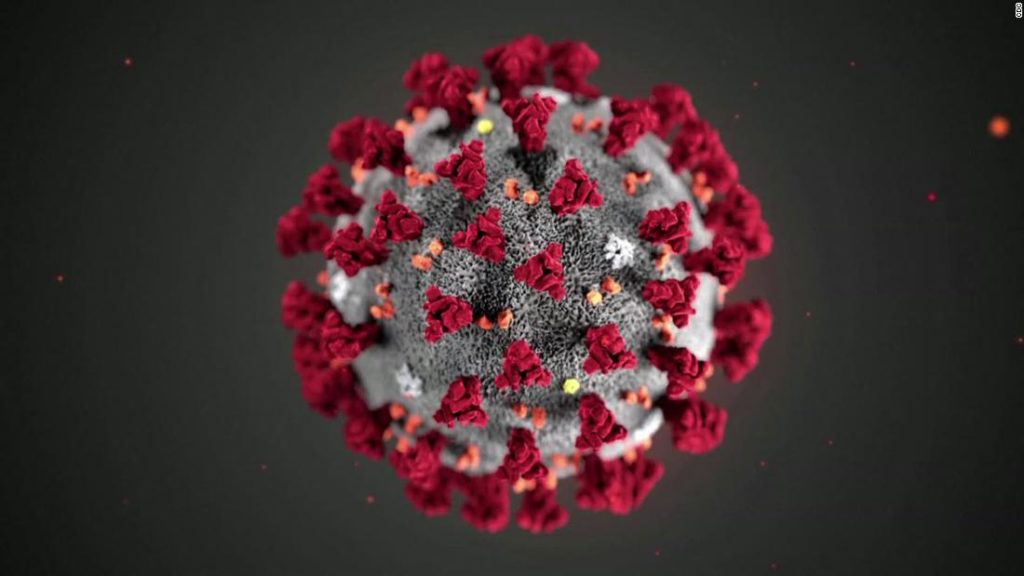It may be a slight exaggeration, but for her many fans, Parton’s $1 million donation this spring to fund coronavirus research at Vanderbilt University, which worked with biotechnology company Moderna to develop a promising Covid-19 vaccine, is yet another example of the altruism that makes the star considered a national treasure.
“When I donated the money to the Covid fund I just wanted it to do good and evidently, it is! Let’s just hope we can find a cure real soon,” Parton tweeted on Tuesday, after early results suggested that the Moderna vaccine was 94.5% effective.
The first vaccinations in the US could be ushered in by late December, Dr. Anthony Fauci, America’s top infectious disease expert, has said. They’ll be made available first to high-risk groups such as healthcare workers, the elderly and people with underlying medical conditions.
YOU ASKED. WE ANSWERED
Q: Does mouthwash really kill the coronavirus?
A: It’s trending on social media and generating excited media reports — another study showing an ingredient found in mouthwash can kill the coronavirus. In this case, it’s as fast as 30 seconds.
WHAT’S IMPORTANT TODAY
As cases spike, America’s response is far from united
When adjusted for population, no states have had more new Covid-19 infections, hospitalizations and deaths over the past seven days than North and South Dakota. The nearby states of Iowa, Wyoming, Nebraska and Idaho are not far behind. That surge has pushed healthcare services to the brink. In response, several governors have acknowledged the failures of their permissive strategies and pushed for stricter health rules and mask mandates to prevent the virus’s spread.
FDA authorizes first rapid Covid-19 home test kit
The single-use test, which was developed by Lucira Health, will be available by prescription and is expected to cost around $50, according to the company. The relatively straight-forward nasal swab can return results in about 30 minutes.
The test could help fill gaps in current testing capacity and curb the virus’ spread — allowing positive cases to be more quickly identified and isolated — but health experts have cautioned that data about its accuracy is still emerging.
Downing Street outbreak raises questions over UK response
After overcoming a serious brush with Covid-19 earlier this year, British Prime Minister Boris Johnson is self-quarantining again following his close contact at Downing Street with a lawmaker who subsequently tested positive. That the prime minister’s official residence has once again become the location of an outbreak has raised serious questions not just about how the UK government is handling the pandemic in the country, but how it’s dealing with the risk inside its own buildings.
The building that hosted the gathering, 10 Downing Street, is not just the official home of the prime minister, but a place of work for hundreds more officials and advisers. It is a mixture of grand reception rooms and meeting rooms, where the prime minister hosts events and holds political meetings, and narrow corridors leading to poorly ventilated offices where civil servants, political advisers and other support staff work.
ON OUR RADAR
- Pfizer is preparing to file for emergency use authorization “within days,” after its vaccine trial reached a safety milestone.
- Republican Senator Chuck Grassley of Iowa, 87, has tested positive for Covid-19.
- A Chinese-made Covid-19 vaccine in mid-stage trials appears to be safe, according to a new study.
- France has become the first country in Europe to reach 2 million coronavirus cases.
- South Australia has imposed a six-day “circuit-breaker” lockdown in response to a virus cluster in Adelaide.
TOP TIPS
You may have heard the terms “percent positive,” “test positivity rate” or “positivity rate” used to describe how dire the Covid-19 outbreak is in your area. That’s the proportion of people who test positive for the virus.
TODAY’S PODCAST
“For the average person, they’re really not going to see it until the summer or the fall.” — Bioethicist Dr. Art Caplan
You may also like
-
UK coronavirus variant has been reported in 86 countries, WHO says
-
NASA technology can help save whale sharks says Australian marine biologist and ECOCEAN founder, Brad Norman
-
California Twentynine Palms: Explosives are missing from the nation’s largest Marine Corps base and an investigation is underway
-
Trump unhappy with his impeachment attorney’s performance, sources say
-
Lunar New Year 2021: Ushering in the Year of the Ox

